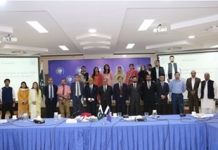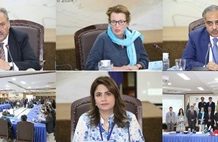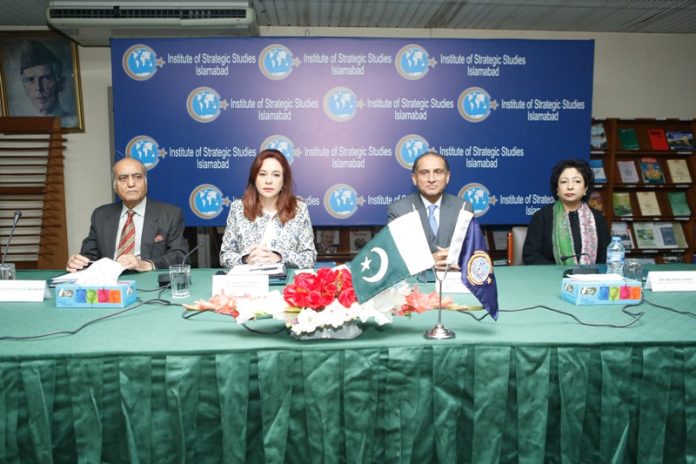Press Release
Public Talk
Role and Relevance of United Nations in the Contemporary Global Order
January 22, 2019
“Global challenges require global solutions. In fact, multilateralism offers the only way to address the complex challenges that no country can overcome alone.” This was stated by H.E. María Fernanda Espinosa Garcés, President of the United Nations General Assembly (UNGA), during her address at a Public Talk on the “Role and Relevance of United Nations in the Contemporary Global Order,”organized by the Institute of Strategic Studies Islamabad (ISSI), today under its Distinguished Lecture Series. The event was attended by ambassadors, academics, politicians and students.
H.E. Ms. Garcés said that presently, the situation in the global order is convoluted,to say the least. There are various challenges to peace and stability. Protracted conflicts continue to detract resources from important issues – the UN refugee agency reported 68.5 million people as displaced, citing developing countries as most affected. Another major challenge which defines the present world is rising inequalities of mobility, which was taken for granted decades ago, has virtually stalled millions of people. Addressing issues of inequalities and structural gaps is important, especially the challenge to provide jobs to young people. It is a win-win cycle which empowers women, men and youth – one way to further this cycle can be by leveraging new technologies to create new jobs, she said.
She went on to say that at a time when the international community should be pulling together, we are instead seeing a fragmented order. The institutions which have carried the international community since the Second World War are being questioned or worse still sidelined for a ‘go in it alone’ approach. It is clear that addressing issues as a united group of nations is important because geopolitical tensions and growing inequality cannot be solved by any single country alone. Global threats are shared so must the solution to them. She said that during her presidency she is fully committed to helping strengthen the global efforts to the international peace and security. People expect the UN to protect them and be there in their time of need. The best way to respond to this feeling of futile rejection of an ever independent world requires multilateralism and cooperation, which includes promoting inclusivity and promoting security, she said.
Earlier, in his welcome remarks, Ambassador Aizaz Ahmad Chaudhry, Director General ISSI, said that the world today has changed in several ways. The UN has played a central role in forging a normative framework. Since 9/11 however, narrow nationalism is raising its head and the strategic landscape has undergone an enormous phrase. There is even now an increasing trend to marginalize the UN altogether. For Pakistan, the UN has a special place, given that the organization has promised to resolve the Kashmir Dispute- unfortunately, it has yet to deliver on this promise.
In his concluding remarks, Ambassador Khalid Mahmood, Chairman BOG ISSI, said that festering wounds from issues such as the Palestinian issues shows that the UN must reassert its role in the security dimension. It should not be forgotten that even though the UN’s Sustainable Development Goals (SDGs) may not have showcased the desired result, the world is definitely better off. In the field of human rights, the UN has taken important strides, which must not be forgotten. Pakistan is proud of its role in the UN peacekeeping and will continue to be a part of this cause.












